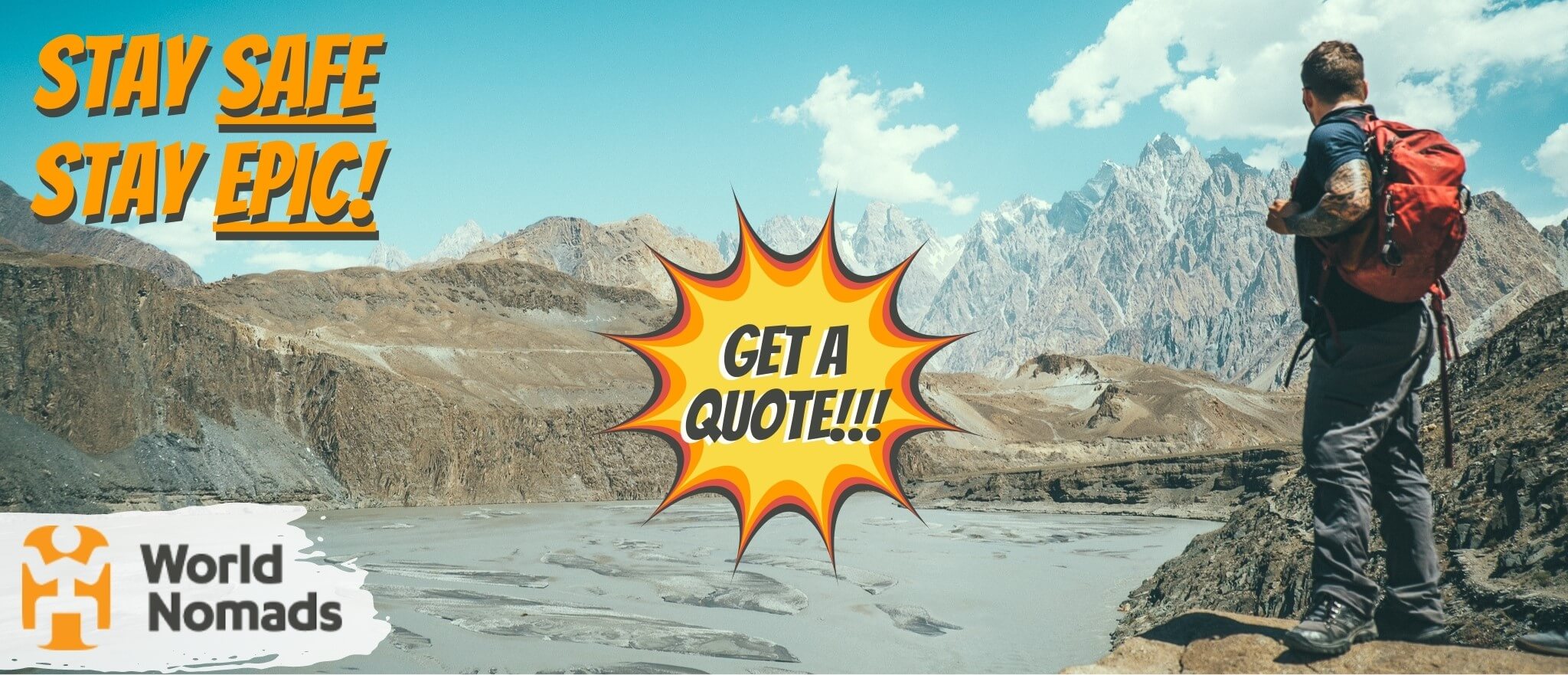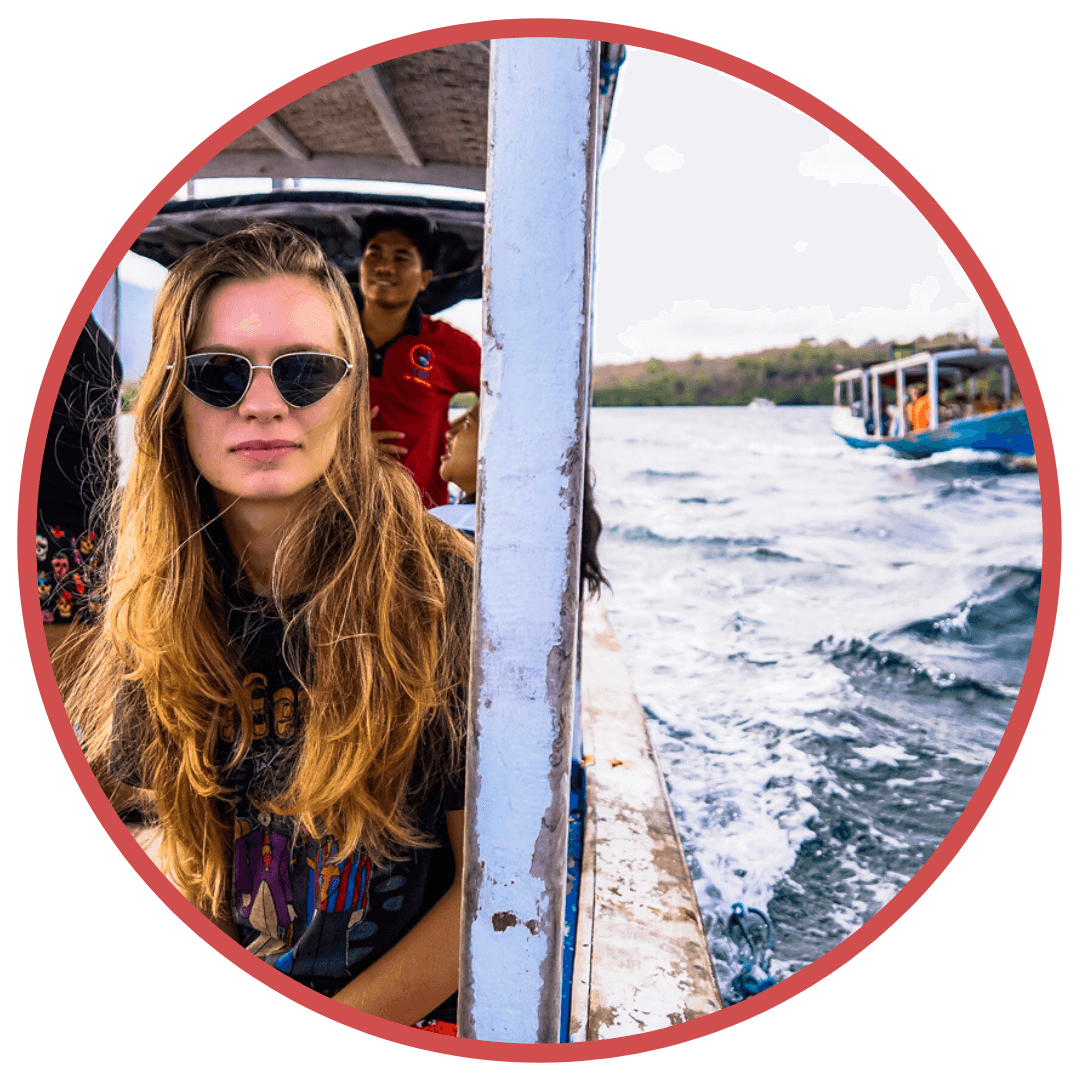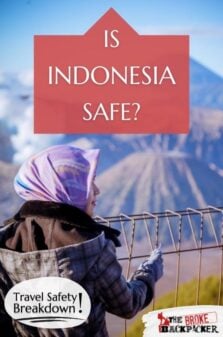With literally thousands of islands to explore, some of the world’s best snorkelling and scuba spots, awesome food, a genuinely interesting mix of cultures and different languages, a long, fascinating history and an infectiously laid back lifestyle, Indonesia is a must-visit spot.
You’ll also find international quality nightlife in Bali, spot giant lizards on Komodo, chill out in the Gili Islands and get lost in the megacity that is Jakarta it will all be amazing. However, Indonesia is not without its darker side and there are quite a few things to consider.
There are violent protests, religious extremists, terrorist attacks and natural disasters such devastating earthquakes and tsunamis. Then there is the threat of volcanic eruption, some harsh laws to keep in mind, poor air quality and occasional sinking ships!
So yes Indonesia can be bloody dangerous. But thankfully, we are here to help you navigate the cultural pitfalls, the petty crime, scams and sometimes scary natural world of this awesome archipelago. Our guide to staying safe in Indonesia will help keep your trip a safe, fun one.

Unlock Our GREATEST Travel Secrets!
Sign up for our newsletter and get the best travel tips delivered right to your inbox.
- How Safe is Indonesia? (Our take)
- Is Indonesia Safe to Visit Right Now?
- Safest Places in Indonesia
- 18 Top Safety Tips for Traveling to Indonesia
- Is Indonesia safe to travel alone?
- Is Indonesia safe for solo female travellers?
- More on Safety in Indonesia
- FAQ about Staying Safe in Indonesia
- So, is Indonesia Safe?
How Safe is Indonesia? (Our take)
Made up of an awesome 17,508 islands, the archipelago that makes up Indonesia would take any traveller an age to explore. It’s a cultural wonderland that is the result of the melding of different traders and conquerors throughout the ages. In short, it’s an amazing place to come and visit.
At the same time, in a country there are some issues. There are the standard travel woes of pickpockets and scammers and some of the worst air pollution in the world. Add to this severe social disparities between rich and poor and then there’s also violent protests and the threat of terrorism to contend with.
As if the human side of things in this vast nation wasn’t enough to deal with, there’s also nature to take into consideration here. There are volcanoes like Bali’s Mount Agung – which has been simmering recently – as well as devastating earthquakes and recent tsunamis. It can be a scary prospect.
Much of Indonesia is actually safe to travel to, however as even a precursory glance down your Instagram feed will show you.
However, since it’s difficult to take a broad look at Indonesia, let’s get into some of the details of what makes this country tick…
There is no such thing as a perfect safety guide, and this article is no different. The question of “Is Indonesia Safe?” will ALWAYS have a different answer depending on the parties involved. But this article is written for savvy travellers from the perspective of savvy travellers.
The information present in this safety guide was accurate at the time of writing, however, the world is a changeable place, now more than ever. Between the pandemic, ever-worsening cultural division, and a click-hungry media, it can be hard to maintain what is truth and what is sensationalism.
Here, you will find safety knowledge and advice for travelling Indonesia. It won’t be down to the wire cutting edge info on the most current events, but it is layered in the expertise of veteran travellers. If you use our guide, do your own research, and practise common sense, you will have a safe trip to Indonesia.
If you see any outdated information in this guide, we would really appreciate it if you could reach out in the comments below. We strive to provide the most relevant travel information on the web and always appreciate input from our readers (nicely, please!). Otherwise, thanks for your ear and stay safe!
It’s a wild world out there. But it’s pretty damn special too. 🙂
Is Indonesia Safe to Visit Right Now?
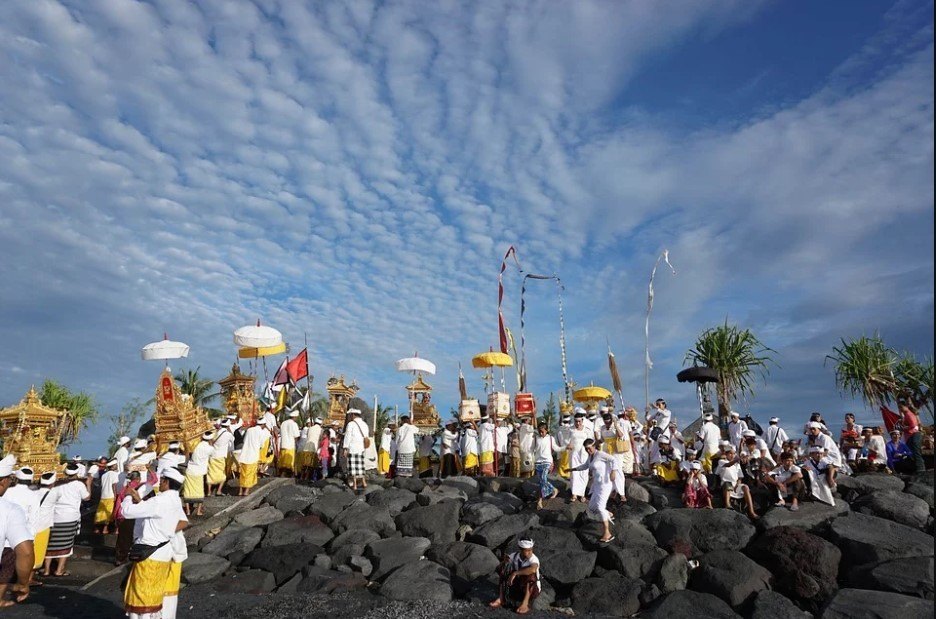
Generally, Indonesia is (or at least was) known more of a “backpacking” destination than one that’s primed for mass tourism. That said, tourism has been growing a crazy amount in this island nation – and the numbers speak for themselves. It’s a massive part of the Indonesian economy, so much so that it was ranked 20th in the world for the size of its tourism industry.
With all these potential seeing these impressive numbers and rankings, the natural is to think, “Well, Indonesia must be pretty safe.”
Well, it might seem that way. The homicide rate is in decline currently (always a good thing), and is ranked on the Global Peace Index (2021) as number 42 out of 163 countries ranked, sandwiched between Botswana and Mongolia. That might not sound like much, but it’s ranked above France, and way above the USA.
However, forest fires, and slash and burn agriculture in Indonesia, cause huge issues across the country it badly affects air quality. This primarily occurs mostly on Sumatra and Borneo. It can be very dangerous for people with prior respiratory ailments (asthma, for example).
Now let’s consider earthquakes and tsunamis. These have, as recently as 2018, greatly affected huge parts of the country often with devastating results. The tsunami of 22nd December 2018 caused a large loss of life and the damage has still yet to be repaired.
Seismic activity is very real in Indonesia. It pays to know at least the basics of what to do in the event of a natural disaster, like an earthquake or tsunami.
With tourism growing so much however, protecting tourists has become a big priority for the Indonesian government and its police force. The likelihood of you coming into contact with something like a terrorist attack in Indonesia is very, very slim – you’re more likely to experience a seismic tremor.
So we’d definitely say that Indonesia is safe to visit right now.
Safest Places in Indonesia
When choosing where you’ll be staying in Indonesia, a bit of research and caution is essential. You don’t want to end up in a sketchy area and ruin your trip. To help you out, we’ve listed the safest areas to visit in Indonesia below.
Bali
Let’s start out with the crown jewel of backpacking in Indonesia – Bali. The Island of the Gods has been drawing in tourists by the thousands for decades now, who flock here for waves, spirituality, beautiful scenery, and epic nightlife. This makes for an interesting mix of surfers, yogis, gap year travelers, digital nomads, honeymooners, retirees, and party animals. On top of that, it’s probably THE safest place in Indonesia, thanks to incredibly friendly locals and a laid-back vibe.
Although it may look tiny on the map, Bali is actually quite a large island with many different areas to explore. There’s much more to it than the beaches, including terraced rice fields, several lakes, and a couple of active volcanoes. Some choose to base in one town and take day trips to see more of the island, while others prefer to bounce around and stay in a few places. Whatever you do, make sure you get out of that beach chair to see more of the island than the super touristy areas.
The budding digital nomad scene has triggered a whole load of coworking spaces to pop up all over the island. In the buzzing town of Pererenan is Tribal, an epic hostel and coworking spot!
Lombok
Lombok is another Indonesian Island, but offers a completely different vibe than Bali. While you can still do adventures like climbing the active volcano Rinjani (it’s a sketchy 2-day climb), Lombok is all about white sand beaches and relaxation. The main tourist spot is Kuta in the South of the island. However, there are amazing places all over the island.
Apart from the natural threats like earthquakes, Lombok is incredibly safe as well. While Bali has a few incidents of pickpocketing and break-ins, Lombok’s population is very peaceful. That’s mainly because locals are still making a living and supporting their families through farming, which makes them less dependent on tourism. Less poverty and hunger means more safety. Unless Lombok is flooded with tourists, it’ll stay a very safe island.
Flores
You guessed it – another Indonesian island! The only threat you’ll have to face in Flores is being eaten by a Komodo Dragon (which is VERY unlikely) or to get a sunburn while exploring the white sand beaches with it’s incredibly clear water. Flores might not have much to offer for adventure, but it’s the ideal getaway if you want to relax for a couple of days. That being said, living in Flores is not really recommended unless you want to be fully secluded.
Most people explore Flores with a boat trip. There are loads of tours that offer all inclusive services. Whether you want to step up your tanning game, go snorkeling with Manta Rays, see the Komodo Dragon National Park and walk on some of the most beautiful beaches in Indonesia, Flores offers it all.
Places to avoid in Indonesia
Most places in Indonesia are safe, but not all of them offer the same comfort and luxuries for tourists. Deciding where to stay in Indonesia completely depends on what kind of trip you want to have. However, there are some places we’d suggest to be a bit more careful than others. We’ve listed them below:
- Jakarta – Jakarta is a GREAT city to visit and pretty safe as well. But the air quality is definitely not ideal. Smog and dust pollute the air and traffic can be horrible. Most expats look down on Jakarta, and we wouldn’t call it a must-visit city.
- Canggu at night (Bali) – since 2020, a lot of break-ins and theft have been recorded in and around Canggu, Bali. That is mainly to be blamed on missing tourism and a local community that becomes poorer and poorer. While Bali is totally safe during the day, travellers, especially females, have to take care of their valuables when walking or driving around at night. Also, make sure to lock the doors of your accommodation and store expensive electronics in a safe.
- Active volcanos – Currently, it’s not advisable to go within 4 kilometres of the Mount Agung crater in East Bali or within 7 kilometres of the Mount Sinabung in Kalo Regency, North Sumatra. Local authorities have set up these exclusion zones due to increased volcanic activity.
- Drugs – not a place, but definitely something to completely avoid in Indonesia. Drugs are highly illegal and possession and use will be punished with the death sentence. We don’t really have to say more, do we?
It’s important to know that Indonesia is pretty safe overall, but a bit of caution and research before you start your travels will go a long way. If you want to increase your safety during your stay, read on for our insider travel tips. Stick to those and you won’t have a single issue in Indonesia.
Indonesia Travel Insurance
World Nomads’ mission is to support and encourage travellers to explore their boundaries. They offer simple & flexible travel insurance, and safety advice to help you travel confidently.
They’ve been doing it since 2002 – protecting, connecting, and inspiring independent travellers just like you.
Get a quote below or read our in-depth review!
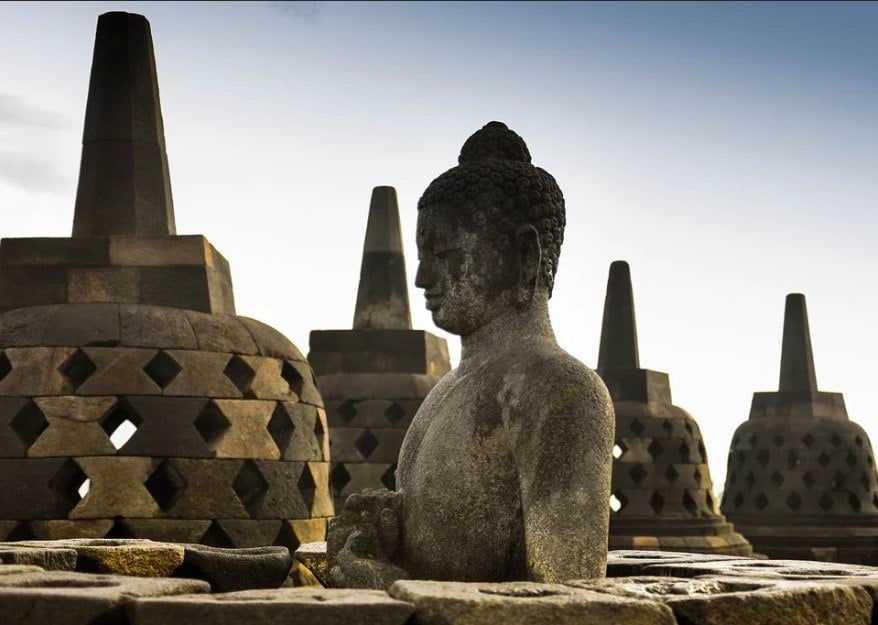
Indonesia is a relatively well-trodden destination and there are more and more tourists heading to this island nation. But that certainly doesn’t mean that Indonesia is always 100% safe. From the natural world to threats from other people, to help keep yourself as safe and as secure as possible we are sharing our best safety tips for travelling to Indonesia…
- Keep your belongings close to you and don’t walk around looking flashy – doing otherwise could easily make you a target of crime
- Make sure your bag away from the road-side as you walk around cities – motorbike thieves can easily snatch a bag like this if it’s on the street-side
- Blend in – wear low-key, modest outfits, especially around religious sites and in more local areas
- Don’t leave your belongings unattended on the beach – they can easily go missing…
- And take care when you’re swimming – know your limits and listen to local advice about rip tides
- Do not go swimming when you’re intoxicated – it seems like a good idea, but things can very easily go tragically wrong
- Be culturally aware – read up on what you should and shouldn’t do during Ramadan (23 April – 23 May 2020)
- That goes for Balinese New Year too – no lights, no TV, no nothing: even the airport is closed during Nyepi (emergency services do still operate though)
- Muslims and non-Muslims have to abide by Sharia law in Aceh Province – any rules will also apply to you!
- Only use ATMs that look legitimate – and watch your back when you’re withdrawing money
- Do your research when renting a motorbike – there are some scammers out there (more on this later)
- Be careful of alcoholic drinks – some, like arak, are locally brewed and have a lethal amount of methanol; some tourists, even in Bali, have died after drinking. If it seems too good to be true (price wise), it probably is
- Know your limits with drink and drugs – being too wasted will leave you more at risk of being a victim of some sort of crime
- But you may want to keep away from drugs altogether – there’s a zero-tolerance policy meaning anything from trafficking to possession of small amounts of anything can lead to serious penalties
- Protect yourself against mosquitoes – there is a risk of dengue virus, amongst other things, so you should definitely cover up and use repellent (especially when you are in more rural situations)
- Make sure you are up to date with your vaccinations – there have been outbreaks of Polio, so check with your doctor that you’ve got the necessary vaccinations for the destinations you plan to hit up
- Know what to do in the event of volcanic or seismic activity – including a tsunami; these can devastate areas of Indonesia
- Look up the Indonesian Tsunami Early Warning Centre – after an earthquake; this should let you know if there’s a threat of a tsunami, but in general, it’s best to keep away from coastal areas
Indonesia is a fantastic place to go and explore but, as you can see, it’s not always the easiest place to travel around. There are many cultural differences that you should be aware of, the potential for natural disasters that shouldn’t be ignored, and also some issues with petty crime. For the most part, however, if you’re sensible with how you travel – and keep our handy tips in mind – you should be fine.
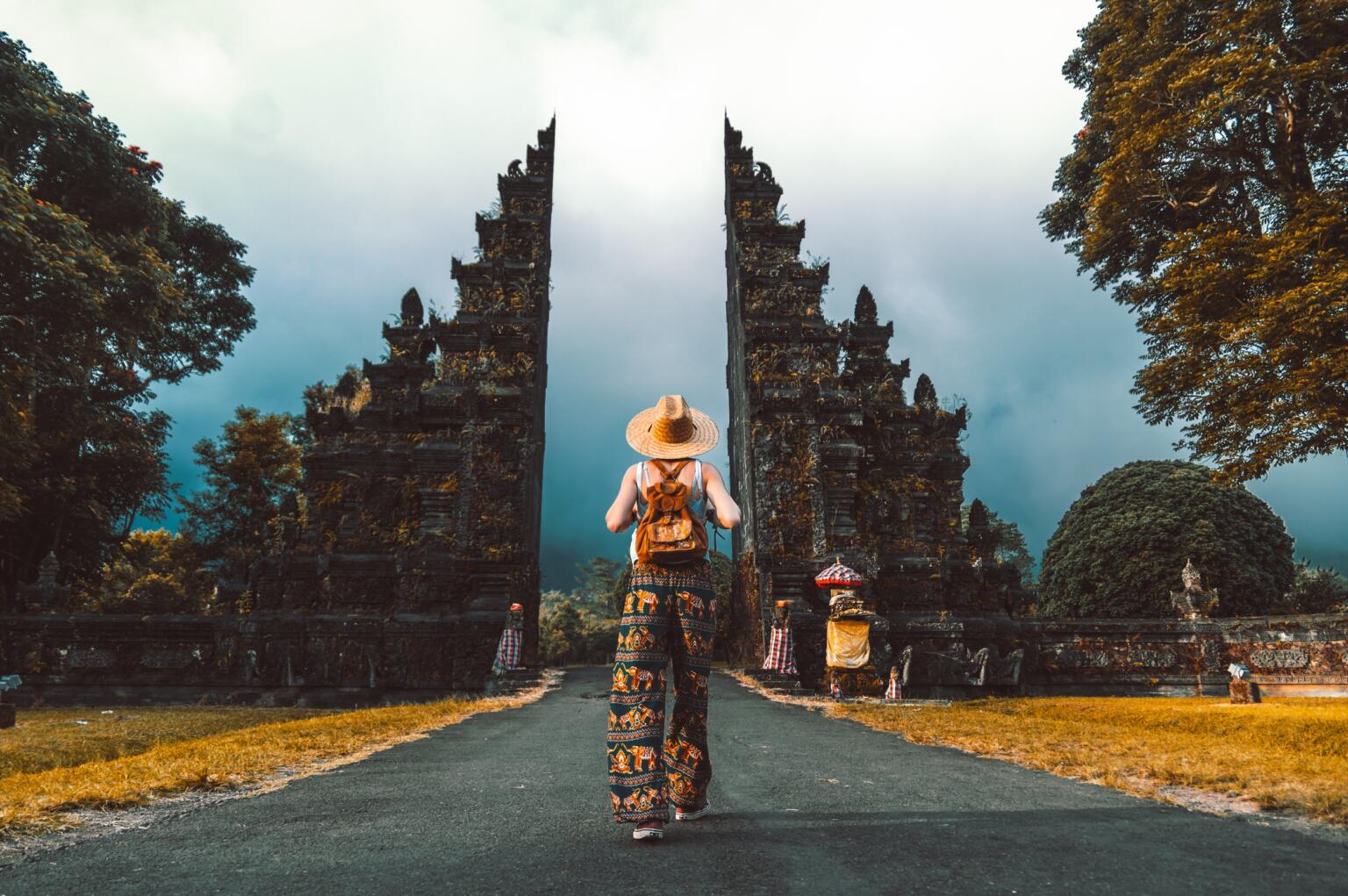
We are all up for the idea of solo travelling. You get to go and enjoy the world at your pace and, most importantly, see what you want to see. It’s great and can be a rewarding way to spend a chunk of your life. However, it can be daunting – we hear you, we’ve been there.
Luckily Indonesia is a pretty good place for solo travellers. It’s been known for a while as a backpacking destination and with certain islands like Bali being strongholds of all sorts of travellers, it can be easy to do. That said, there are still a few things you should consider…
- There are a ton of hostels and homestays spread across the islands of Indonesia. This is a good way to make friends and maybe even get yourself a travel buddy; it’s a good way to start your trip. Make sure you do your research, however, and that places are rated highly by other solo travellers.
- Get involved in activities; signing up for a tour is a great way to meet up with other people, do things without the certain level of fear that can come with travelling by yourself, and also learn things from your guide.
- Learning some Indonesian phrases and words to help you out would be a great bonus to your trip. A few words of Bahasa Indonesia (as it’s called) will aid you in everything from asking for directions and chatting to locals, to reading menus at local restaurants.
- Ask the local friends you’ve made, your taxi driver, or the staff at your accommodation for their insider knowledge. No doubt they will have tips on where you should go, what you should do, what places are or aren’t safe; they’ll also be able to answer your questions about Indonesian culture, too.
- Carry around only the money that you need so that you don’t draw attention to yourself. Opening your wallet to reveal a wad of cash could attract some unwanted attention and put you at risk of being a target for petty thieves.
- Have different ways of accessing your money. Make sure you’ve got money set aside, stashed in a day pack, in your money belt, or have multiple bank accounts – maybe even an emergency credit card.
- Don’t get really wasted. Not only women, but also men can get into dangerous situations by losing your senses and good judgement by being completely drunk.
- Keep in touch with people back home – your mum will thank you! But seriously, going off-grid isn’t safe – make sure people know what you’re doing, where you’re going, and when you plan to do it.
- Travel light. There’s nothing worse than dragging around a zillion bags through humid Indonesian towns, villages and cities.
Solo travel in Indonesia is super fun. It is definitely worth your time exploring all the islands and finding the right places for you. Still, you will have to make sure you keep your wits about you, as you’ll be the only one looking out for you. Make sure you stay aware of local customs and laws, too, and most importantly: travel sensibly. You’ll be fine!
Psssst…. Searching for your Tribe?
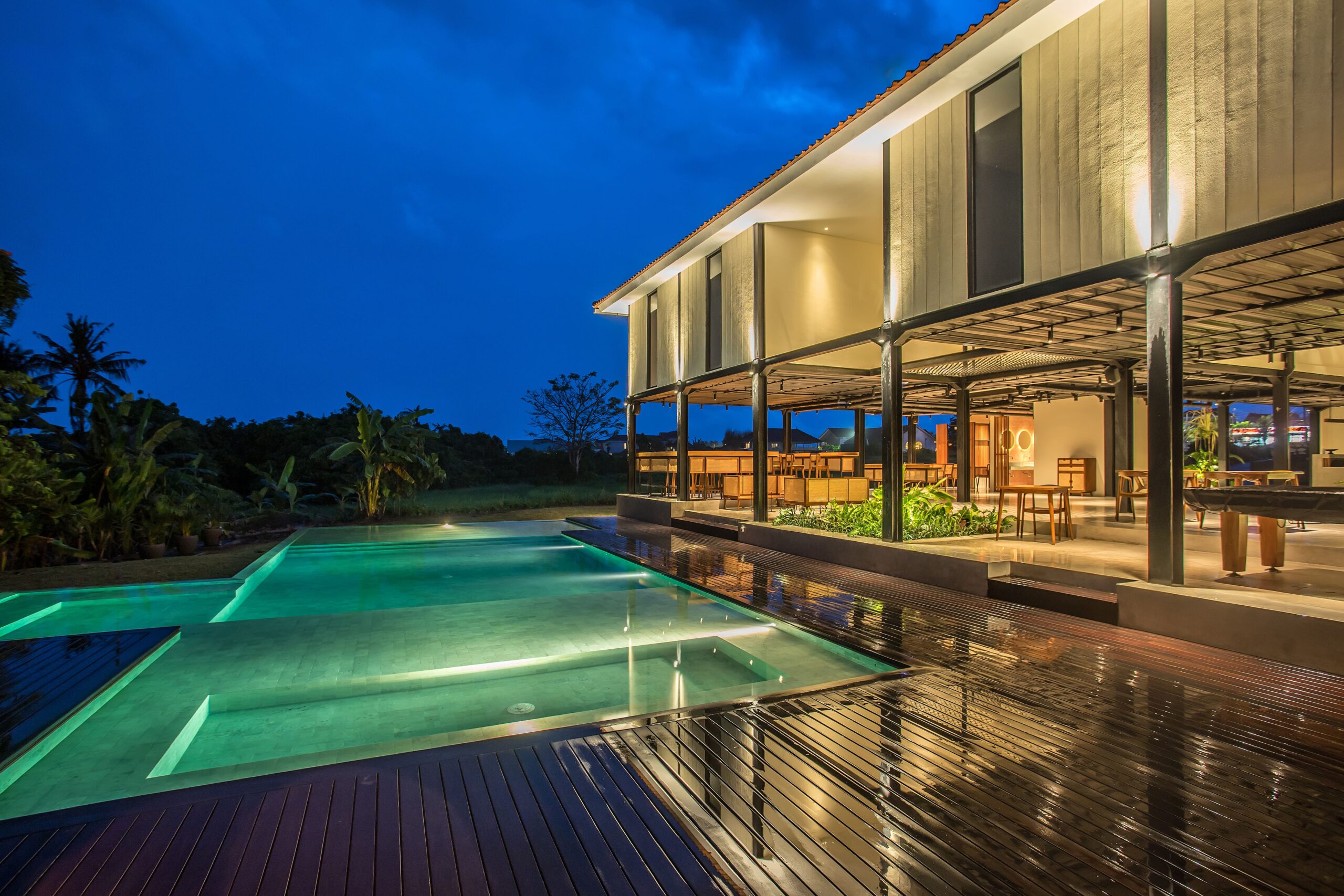
Tribal Hostel – Bali’s first purpose-built co-working hostel and perhaps the greatest hostel in the world!
An ideal hub for Digital Nomads and backpackers, this very special hostel is now finally open…
Come on down and enjoy amazing coffee, high-speed wifi and a game of pool 😉
Is Indonesia safe for solo female travellers?
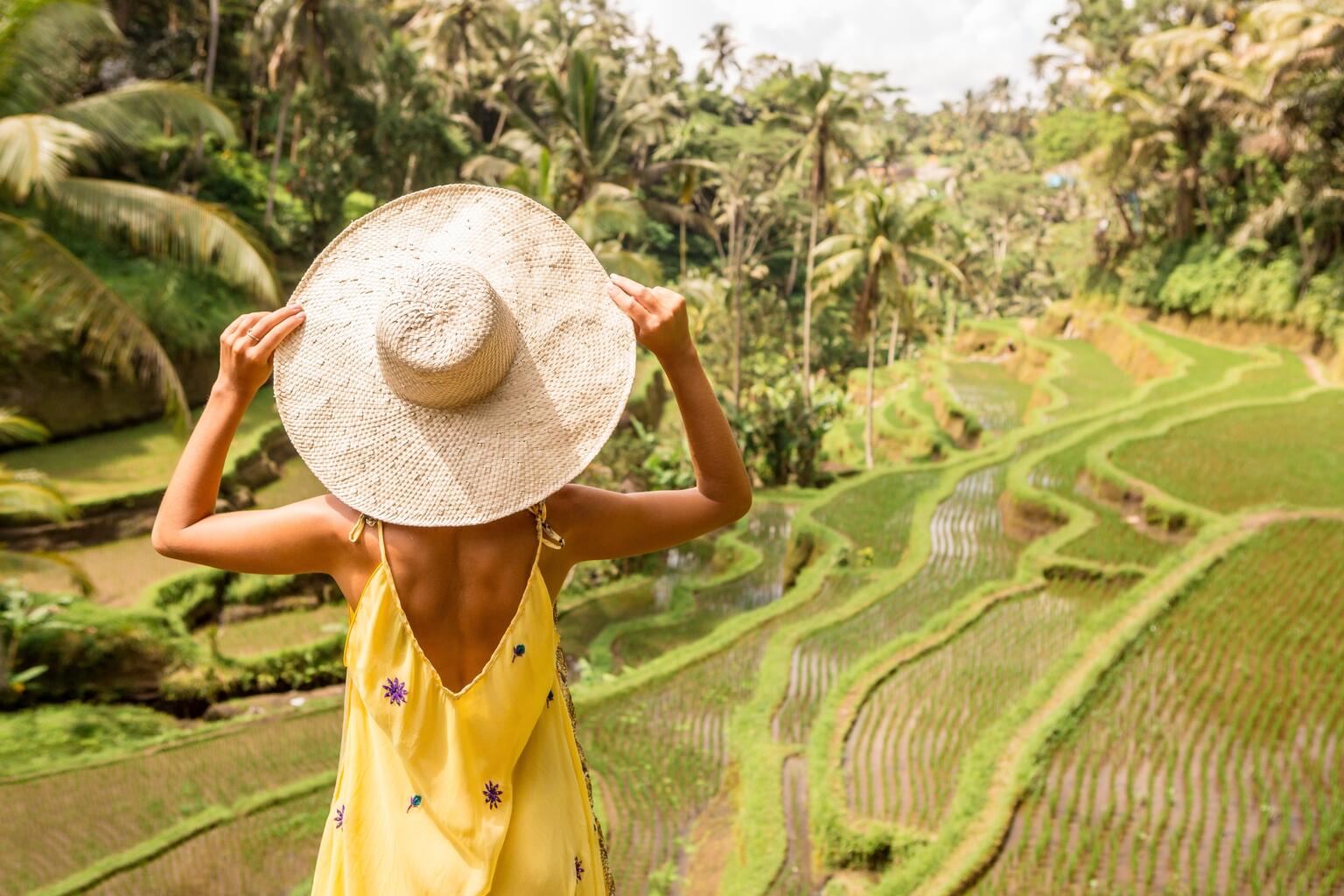
Even for female travellers, Indonesia is a fun place to travel. Solo female travellers flock to places like Bali to enjoy the beauty of the island. Travelling much of the country is quite similar to travelling around other parts of Southeast Asia.
You will find a load of other solo female travellers to make friends with and many women do travel here without many problems at all. Indonesia, however, is an island nation and not every island – or each part of every island – is the same. In some areas, you will need to pay more caution than in others (compare Aceh to Bali, for example), so here are our tips for solo female travellers in Indonesia.
- Knowing what to wear, as well as where and when wearing certain clothes is appropriate, is important when you are travelling around Indonesia. Bali might be pretty laid back, but even in the Gili Islands locals have asked women not to walk around in their bikinis away from the beaches.
- In Aceh, for better or worse, Sharia law is in place. Women have to, by law, cover their hair with a headscarf, cover their arms and legs. With this in mind, modesty is definitely key, so wear loose trousers or a long dress with sleeves to keep cool.
- Other strongly Muslim islands, such as Lombok, Java and Sumbawa, have a big focus on modesty for women – even though it’s not Sharia law. The best thing to do if you find yourself any of these places is to simply take a look around at how the local women are dressed and try, as much as you can, to take cues from them.
- Bali, on the other hand, is a Hindu island. There are other cultural taboos here, such as entering certain temples when you’re on your period (how can they tell anyway?). Apparently, the “energy” of women during this time is just too much for people!
- In Sumatra and Flores there are strongly Christian areas where – surprise, surprise – modesty is also a virtue. Make sure you cover your shoulders and knees, blending in as much as you can (if doubt, look around and see what the other women in this area are wearing).
- Horn honking and catcalling from Indonesian men does happen, unfortunately. When or if it does occur, it’s best just ignore it and walk on. Generally, Indonesian men are pretty nice, but do be aware that these things can happen.
- That said, as a solo female traveller, you may be seen as more of a “love interest” for local lads. If you don’t want the attention, it is best to remove yourself from any situation that feels uncomfortable and be firm with how you feel.
- If someone is asking too many questions about where you’re staying, you’re itinerary or if you’re married, just lie. You don’t have to tell them the truth, so keep yourself safe and tell some white lies if you don’t feel comfortable with the questions or who’s asking them.
- Look up the places you will be staying at before you start out on your trip. Needless to say, you should definitely pay attention to reviews from fellow females on whatever accommodation you want to stay at.
- Beware of drink spiking. This does happen and the best way to avoid is to keep an eye on your drink, never put it down, and to refuse (politely, of course) any offers to have a drink bought for you.
- Tell your friends and family back home your itinerary, what you plan to do, where you plan to be and when you plan to be at those places.
- There is nothing wrong at all with hiring a guide – in fact, you may get to see more places, learn more stuff than what you can make out from your guide book, and perhaps meet some other travellers too. Just make sure the guide, or tour company, is well-reviewed (especially by other female travellers) and trustworthy.
Because it’s such a popular destination with independent travellers and backpackers, chances are you will get to stay at some pretty cool hostels and meet some like-minded solo female travellers who are doing what you’re doing. Hostels offer a great chance to make friends and share travel & safety tips.
However, like everywhere in the world, women travelling by themselves in Indonesia are more at risk than their male counterparts. The usual rules apply, the same things you might do in your hometown anyway: trust your gut and don’t wander around at night by yourself.
More on Safety in Indonesia
We’ve covered the main safety concerns already, but there are a few more things to know. Read on for more detailed information on how to have a safe trip to Indonesia.
Is Indonesia safe to travel for families?
Indonesia might not be a the atypical destination to take your children on holiday, but why not?! It’s not always going to be straightforward (depending on how you travel), it’s going to be hot and humid, and there’s bound to be some tricky times, but Indonesia is an intriguing archipelago where children are very much welcome.
In fact, if you feel like dipping your toe into Indonesia and its myriad cultures – and want your children to be able to safely lap it all up – then Bali is a great starting point.
Here you will find a host of child-friendly facilities all across the island that will cater towards families. There are resorts and hotels in the southern part of the island and clean cafes with good food on offer.
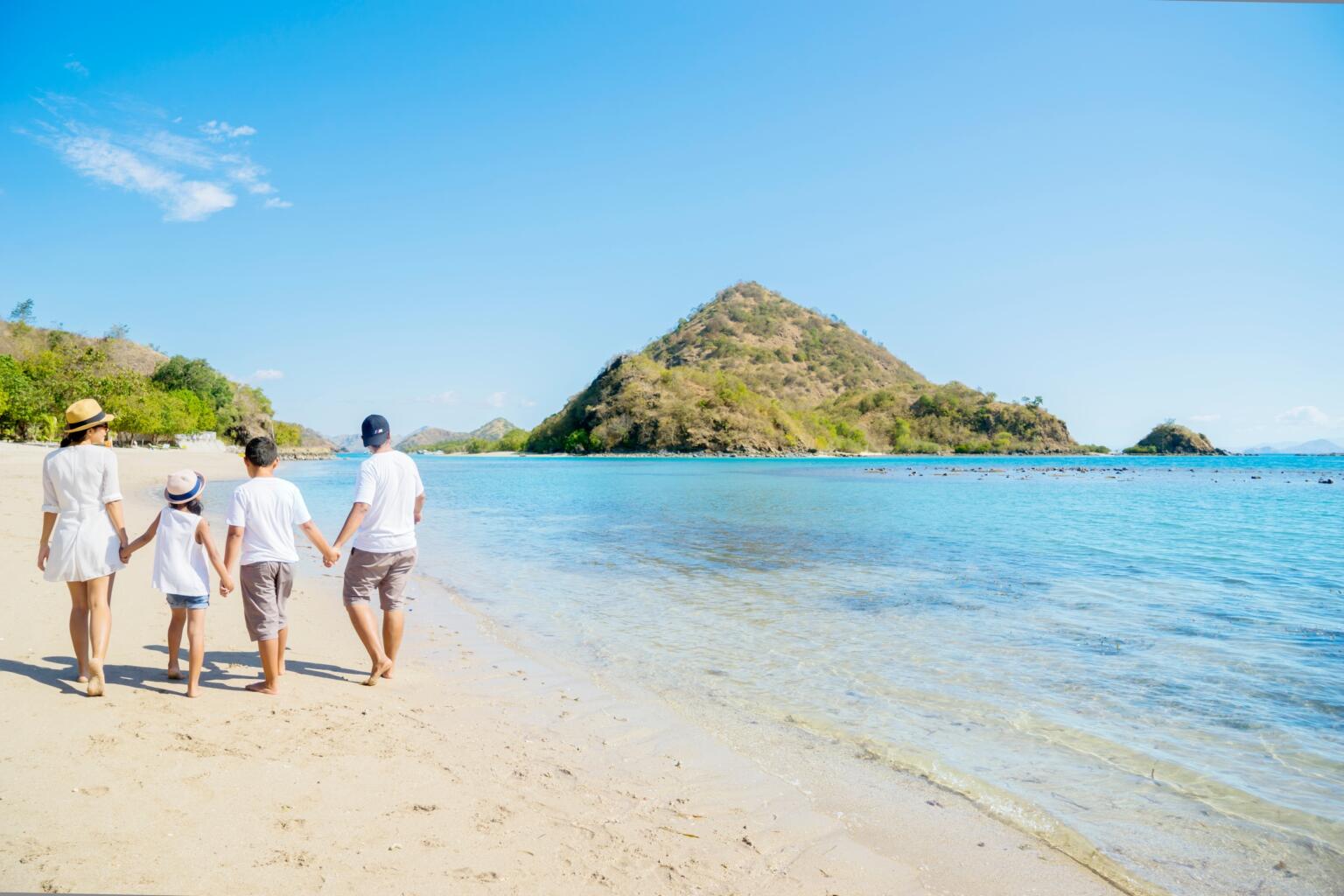
In other parts of Indonesia, however, these kinds of child-friendly specialities are much harder to come by.
If you’re travelling with younger children, it’s best to bring some sort of carrier as opposed to a pram. This is the done thing in this part of the world anyway, plus getting a pram around on the non-existent pavements is just not going to fun at all.
When it comes to breastfeeding, don’t do it in public especially in more conservative places. It’s best to see what other local ladies are doing and follow suit.
Mosquito repellent and sunscreen are a must if you’re planning a family trip to Indonesia. Again, these items can be hard to find in some destinations and you will need to be using them.
Probably the biggest threat to children in Indonesia is actually the air quality. It can actually reach alarmingly unhealthy levels in Jakarta, for instance. Small children can be very badly affected by this, especially got a pre-existing respiratory condition (even asthma).
Though it probably will be a challenge (unless you stay in a lovely resort or luxury accommodation in Bali), Indonesia will be a rewarding place to travel with your children and somewhere they aren’t likely to forget soon!
Is it safe to drive in Indonesia?
Indonesia can be a pretty… hair raising place to drive. Local drivers are not the best, the roads are not always the best, and the extreme weather that hits the islands can mean those roads only get worse – and more dangerous.
People don’t always follow the traffic rules in Indonesia. This means that it can be a pretty stressful place to drive, especially if you have never driven in a place like this before.
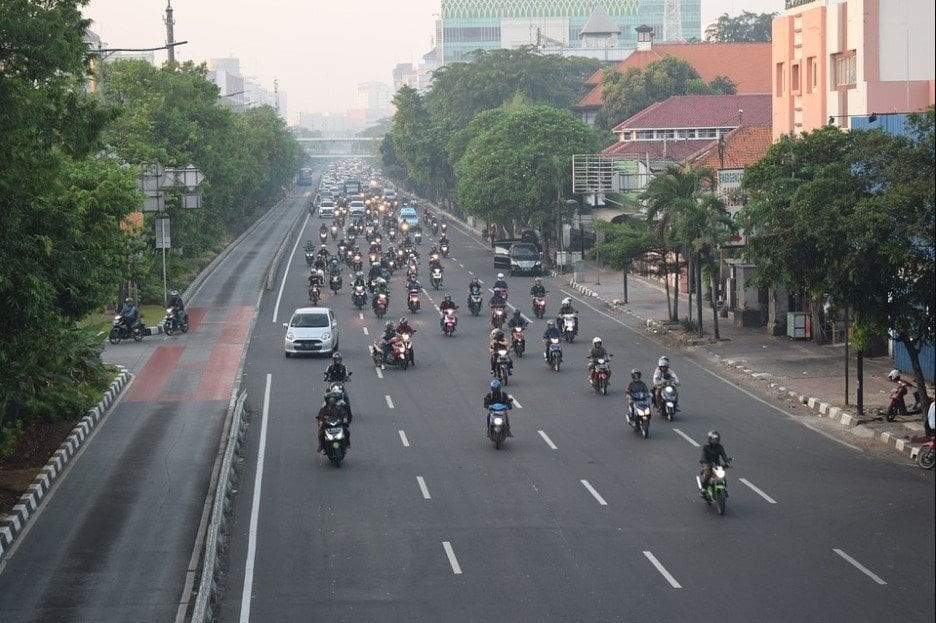
If you are the remote bit concerned or don’t feel confident enough, it is totally fine and in fact quite normal to hire a driver.
A popular way to get around is by motorbike. Particularly on the smaller islands, but basically across all of Indonesia. We urge you to be careful when hiring a motorbike: make sure you have prior experience, know how to ride one, and that your travel insurance covers you in case of an accident.
Wearing a helmet is the law and the road conditions can be pretty hairy so, yes, you should definitely be wearing one.
Make sure that when or if you do happen to hire a motorbike, that you take pictures or a video of the state of the bike, just so that damage that was already there can’t be blamed on you.
The best thing to do if you’re really not sure is to just hire a driver. It can be fun to self drive through Indonesia but, at the end of the day… we just don’t think it’s that worth it.
Is Uber safe in Indonesia?
Uber was but no longer is in operation in Indonesia. In fact, it’s nowhere to be found anywhere in Southeast Asia.
Instead, the Malaysia-founded, Singapore based Grab moved in and got all the business; 75% of all Uber drivers have moved over to the Grab platform in the last couple of years.
There is also the homegrown service that is Go-Jek.
This Indonesian app provides an Uber-like service and is growing year on year. Both Go-Jek and Grab work much like Uber: you can track your journey, know how much you’ll be paying, book online, pay in app, see driver reviews – all that sort of stuff that makes this sort of service a safe option.
Go-Jek and Grab operate in most big cities, large towns and tourist areas.
Are taxis safe in Indonesia?
Taxis are plentiful in Indonesia, normal to use, and are, in general, pretty safe to use. However, you should make sure that you only take journeys with a reputable taxi company; and definitely do not use unlicensed taxi drivers.
Unlicensed taxis usually consist of cars that simply aren’t up to scratch, don’t have meters, they won’t have an ID on their dashboard, and they can really rip off passengers, charging a whole ton of money. The drivers are also unvetted.
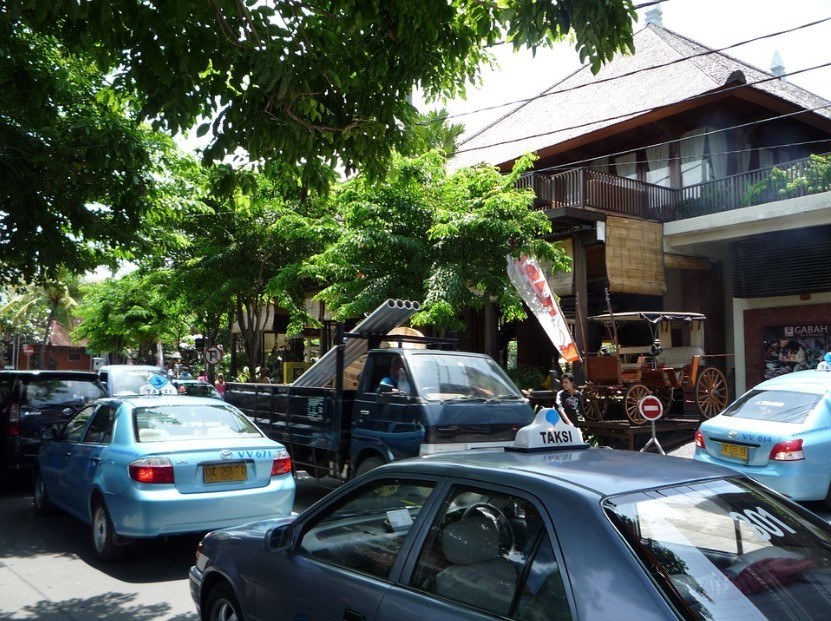
You can ask for your accommodation to order you a taxi, recommend a taxi company for you (which may even use their own app), and the taxi will come straight to your location and take you where you want to go, paying by the meter.
Good taxi companies include Bluebird, Silverbird, and Express. These can be found all over places like Jakarta and on Bali. They are a good choice: for example, Bluebird have English speaking drivers and a smartphone app that you can use to book a cab.
You should definitely ask your driver to use the meter if they’re not already doing so; in Indonesia, this is called an argo. If they aren’t using it, then insist that they do.
The only time you won’t be using a taxi with a meter is at airports, when you can pay for a pre-paid taxi to take you to your accommodation.
In general, taxis are safe in Indonesia – they’re licensed by the government, they’re fairly widespread and available and, if you’re happy with your journey, feel free to give the driver a tip.
Is public transportation in Indonesia safe?
Public transport in Indonesia is varied to say the least. Mainly it consists of buses and minibuses too, but there are more old school ways to get around, such as the dokar (horse and cart), and more modern ways to get around, such as the LRT and MRT in Jakarta.
To start with, let’s start with the becak. This three-wheeled vehicle has been banned from the main streets in big cities, but you can still jump on one in the backstreets. They’re not the best way to get around, but they are an experience. Just make sure you negotiate the fare before you ride – drivers are tough hagglers, though!
Then there’s dokar. Yes, Indonesia still has horse-drawn carts as public transport, which are also known as cidomo in the Gili Islands and bendi in West Sumatra.
These can fit about four people in them and are, to be honest, mainly found in tourist areas. Often, the poor horses and ponies aren’t very well looked after, so we would say it’s probably best not to put these animals through lugging you around.
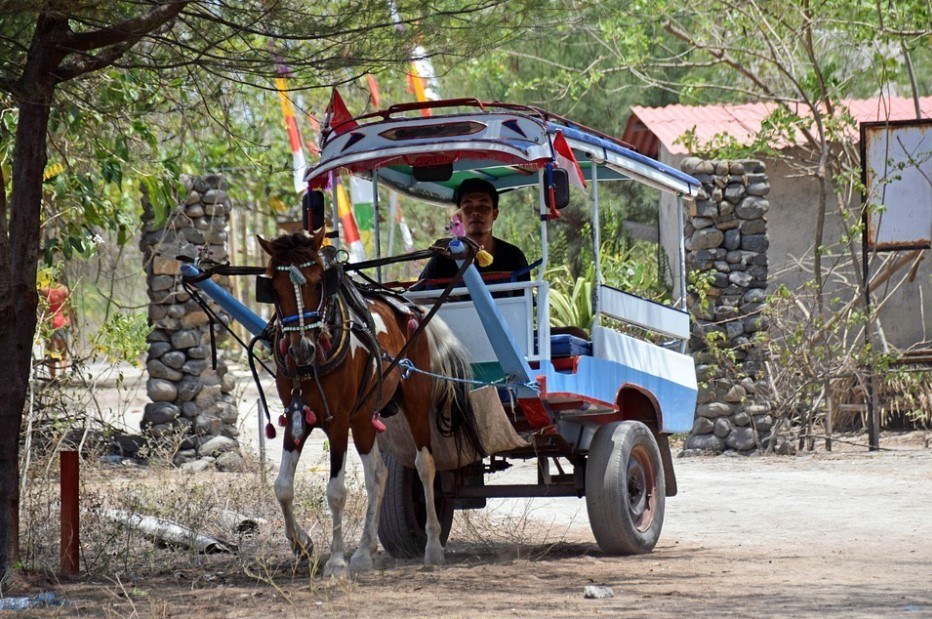
Buses come in all shapes and sizes in Indonesia. Large buses are mainly used as city transport on Java; Jakarta, for example, has a wide-reaching bus system that’s very cheap, not always straightforward and which can be plagued by pickpockets, so use with caution.
Minibuses are the classic way to get around and are pretty ubiquitous. This is the mainstay for both locals and backpackers. They trundle both in and around cities, as well as between destinations. They go by many different local names, too.
Most of these run along established routes and will pick up and drop off passengers as they go along. Be aware, however, that these minibuses (as is the case in most of Southeast Asia) are likely to be crammed full of all sorts of boxes and people. As a foreigner, you will also most likely be charged more than double the normal fare. Ask your accommodation what the price should be, or book through them.
The cities in Indonesia aren’t known for their train networks. However, Jakarta – the capital city – does have a few different systems scattered around its many neighborhoods and districts: these are the LRT, the recently opened (2019!) MRT, the KRL Commuterline and the Airport Raillink.
Java also has an extended railway network, as does Sumatra (albeit small). Both are comfortable and are arguably the easiest way to travel around, however limited they may be in where they go.
Though safe, public transport in Indonesia isn’t equal and some companies and methods of getting around may be more unsafe than others. Research definitely pays off.
Is the food in Indonesia safe?
Food, food, glorious food… where do we start when it comes to Indonesian food? Well, in a country that is made up of more than 17,000 islands and an amalgamation of hundreds of cultures and different peoples, there are a lot of flavours and influences on offer.
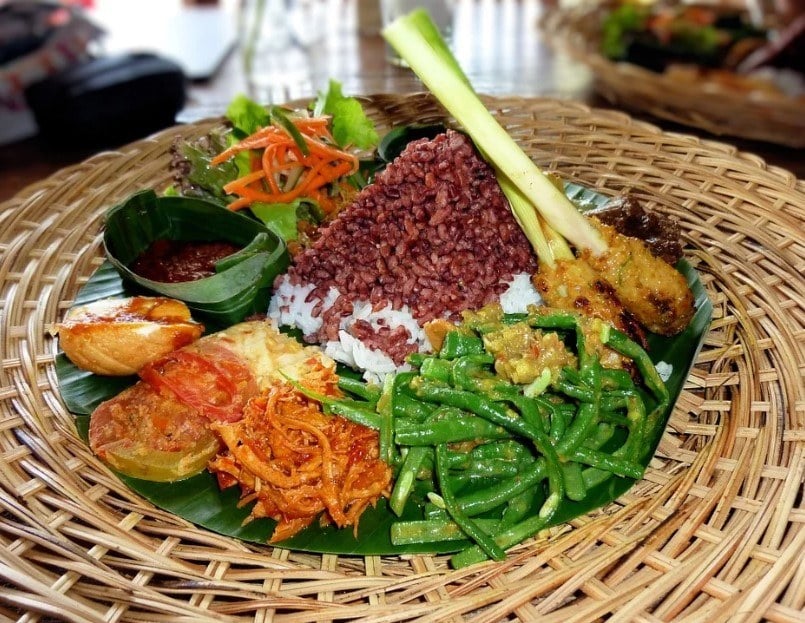
Whilst the food is delicious that doesn’t mean that the food in Indonesia is safe. Sometimes you may be risking getting a little bit of a bad stomach (to put it lightly) and there’s nothing worse than that where you’re trying to have an awesome time on a tropical island…
- Be careful of going in too hard, too quickly. Indonesian cuisine is amazing, but there are some things that you almost certainly won’t be used to. Sambal – that famous chilli sauce – for example can play havoc with stomachs that aren’t used to spicy food.
- Only buy fruit that you can peel yourself. If the vendor has peeled it already, it’s convenient, yes, but they might have unclean hands, or the knife might not be so clean. Or the bag they give it to you in might not be clean. Unpeeled bananas are king (and good for you too).
- Raw foods can also be bad for you. Bali, for example, has a bit of a health kick going on in its cafes with salad pots and smoothies going on. Just make sure that these trendy cafes have good reviews and seem clean before diving into anything “raw”.
- Wash your hands, people! This is such a basic tip, but it’s one that may just catch you out one day. Indonesia’s cities aren’t famed for their cleanliness, so when you sit down to eat a meal – especially if it’s with your hands – make sure your grubby mitts are washed before you begin chowing down.
- Definitely do go and eat at local places – don’t miss out on them, just make sure that they’re popular with said locals. The busier a place is, the more likely that a) the food is very tasty and b) the food doesn’t make people ill.
- Similarly, as a rule of thumb, only eat at street vendors who are cooking stuff up freshly. Avoid ones with piles of pre-cooked stuff that they made at home. Local tummies may be used to it, but most likely yours won’t.
Whilst you shouldn’t be afraid of so called street food in Indonesia, it is totally fine to opt for cleaner premises if you feel more comfortable dining in such places. To be on the extra-safe side, you may want to bring hand sanitiser and perhaps some anti-diarrhoea medication.
Can you drink the water in Indonesia?
You cannot drink the tap water in Indonesia at all; it is very unsafe safe to do so.
Drinking the tap water in Indonesia will most likely make you pretty ill. It is however safe to use for showering and washing.
If you do want to drink it and not buy plastic bottles of water, that’s fine: just make sure that you boil it (1 minute of vigorous boiling should do the trick, but do it for longer at higher altitudes).
It’s a good idea to bring a refillable water bottle, too, just in case your accommodation has their very own filtered water.
Is Indonesia safe to live?
Known for its cheap cost of living and laid back lifestyle, Indonesia is a surprisingly popular destination for expats looking for a different pace of life. Many seek out the wonders of well-trodden destinations like Bali and Jakarta, which are two sides of a very different coin.
Jakarta is a good base for exploring the country. It’s also a good place to get a job. It has plenty of entertainment and plenty of other expats and, locals, to meet and make friends with. Big cities like Jakarta do obviously come with their drawbacks, however. The heavy pollution here is a serious issue and very much does affect people’s lives.
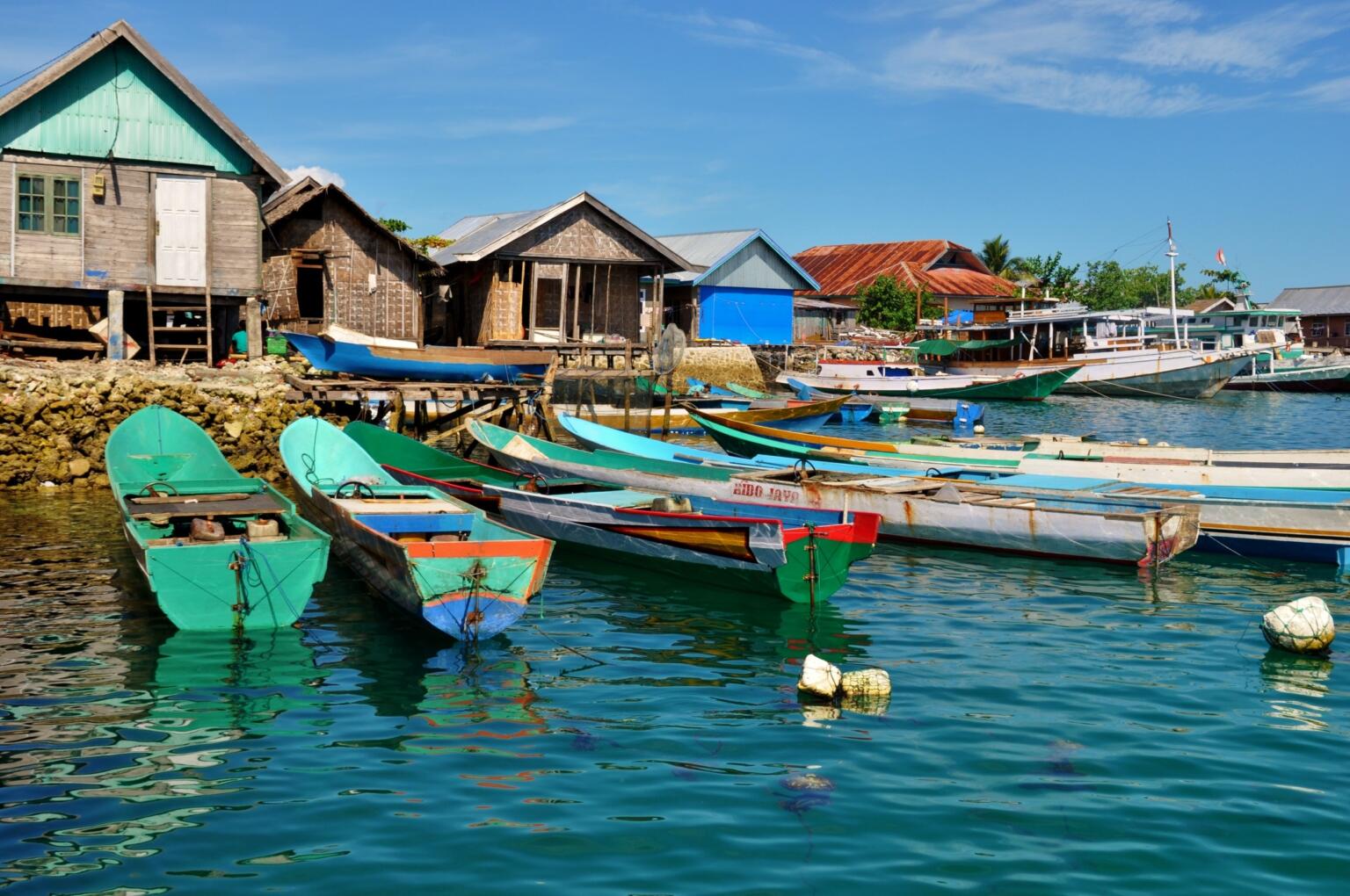
Violent crime is rare. That said, walking around late at night in cities (especially if you’re a woman) is not really advised at all.
The perceived repression of individuality in Indonesia may make you think twice about living there, too. Citizens in Indonesia must have a KTP, an ID card, and on that card the “Religion:” field is mandatory. This has led to people become religious only for the KTP, leading to potentially trumped-up numbers of people who say they’re Muslims but are actually atheists. Think of this what you will.
Additionally, if you are part of the LGBTQ+ community, don’t expect to have your views on issues heard, or have your way of life respected in any way.
There is also a big disparity between rich and poor. Some people live in slums along rivers with no running water whilst others live in swanky penthouses in shiny high-rises.
To conclude, Indonesia is a big country. Do your research on where is most foreigner-friendly, where you can get good jobs, where the air quality is better than other places, and where you might be able to meet some like-minded people. Bali is an obvious option, but if you’re looking for off the beaten track, join expat groups, ask around, and see what else you can discover.

A new country, a new contract, a new piece of plastic – booooring. Instead, buy an eSIM!
An eSIM works just like an app: you buy it, you download it, and BOOM! You’re connected. It’s just that easy.
Is your phone eSIM ready? Read about how e-Sims work or click below to see one of the top eSIM providers on the market and ditch the plastic.
Buy an eSIM!Is it safe to rent an Airbnb in Indonesia?
Renting an Airbnb in Indonesia is a great idea. And it’s perfectly safe, as long as you read the reviews. Staying at an Airbnb during your trip will also open up new possibilities and options to experience the country. The local hosts are known to take great care of their guests and give the absolute best recommendations of what to do and what to see. Local knowledge always goes a long way, so be sure to reach out to your hosts if you’re unsure about how to fill up your Indonesia itinerary!
On top of that, you’ll stay safe with the reliable Airbnb booking system. Both hosts and guests can rate each other which creates a very respectful and trustworthy interaction.
Is Indonesia LGBTQ+ friendly?
While popular and developed places like Jakarta and Bali are relatively open-minded and welcoming, homosexuality is still not supported and in some places. Indonesia is a highly religious country, and therefore not always safe for LGBTQ+ travellers.
However, as long as you’re being discreet and cautious, you can have a great time in Indonesia, especially in Bali.
Visiting ultra-conservative villages in Sumatra for example will most likely get you into trouble if you show public affection. Do your research of the places you want to visit beforehand and you can have a safe trip. If possible, stick with Bali for your travels. The people there are a bit more open-minded (or they just don’t care). You will get weird looks though and it’s not possible to avoid one or the other nasty comment either.
FAQ about Staying Safe in Indonesia
Here are some quick answers to common questions about safety in Indonesia.
So, is Indonesia Safe?
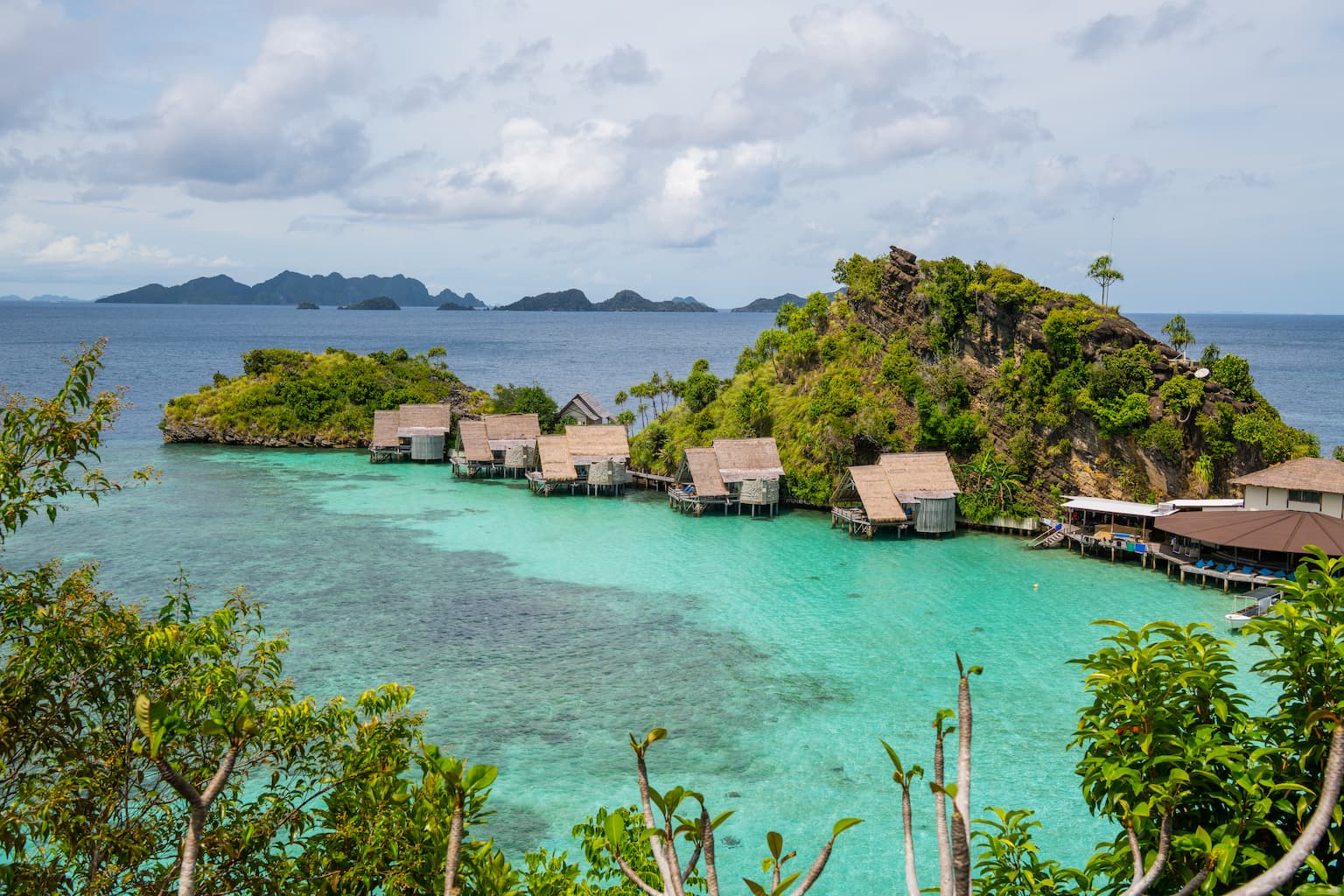
Yup, Indonesia is definitely safe, especially if you follow our travel tips. The country isn’t completely without its issues but where isn’t? Your visit to Indonesia will most probably end safely and happily and you will be excited for your return.

And for transparency’s sake, please know that some of the links in our content are affiliate links. That means that if you book your accommodation, buy your gear, or sort your insurance through our link, we earn a small commission (at no extra cost to you). That said, we only link to the gear we trust and never recommend services we don’t believe are up to scratch. Again, thank you!


